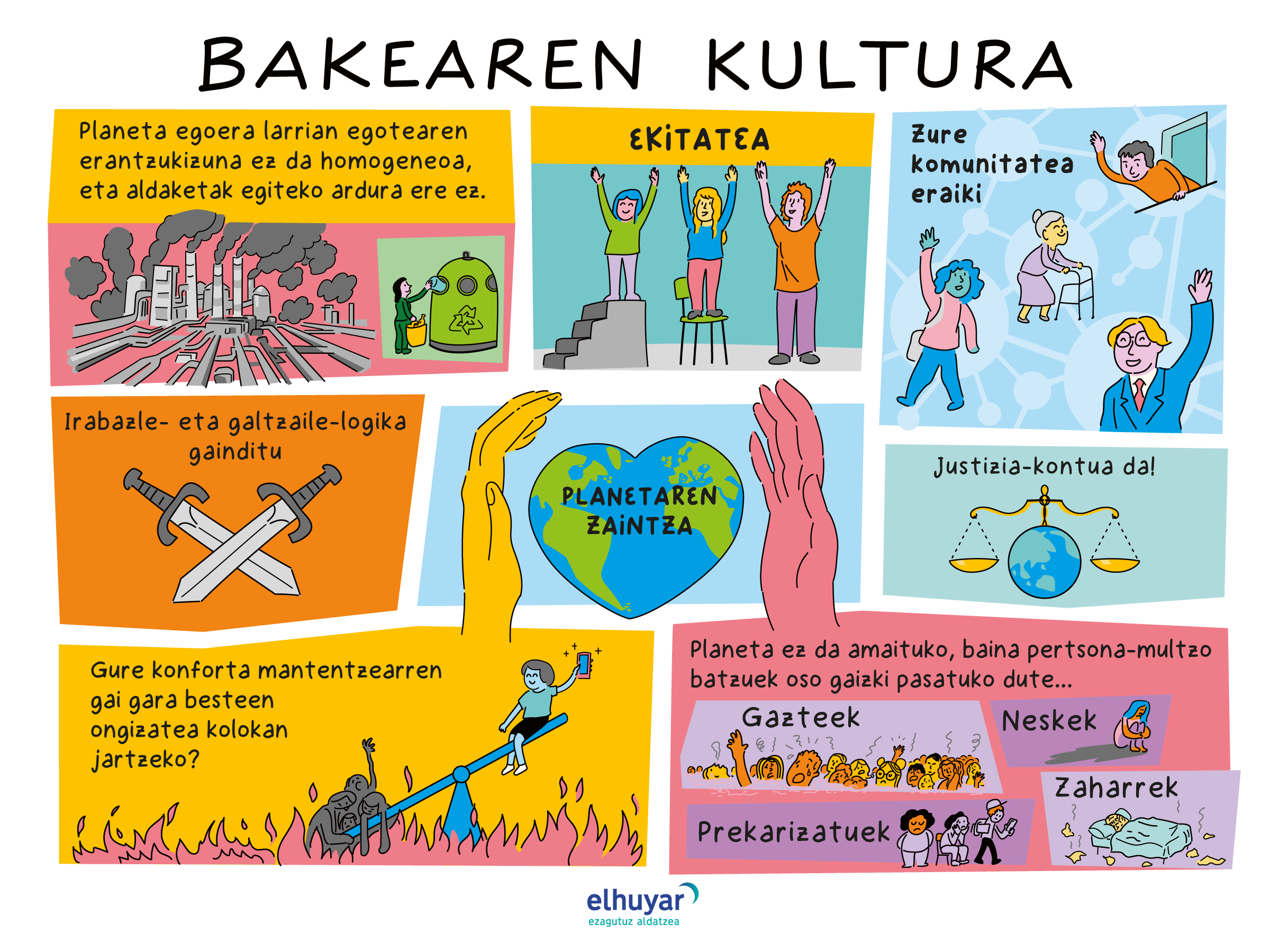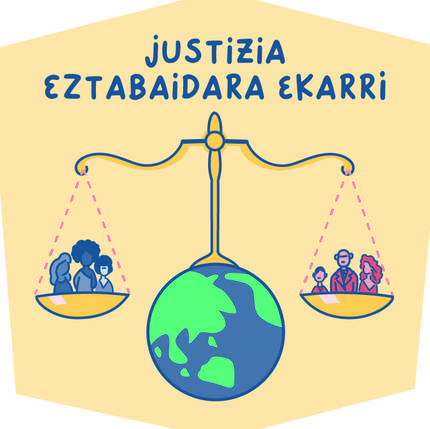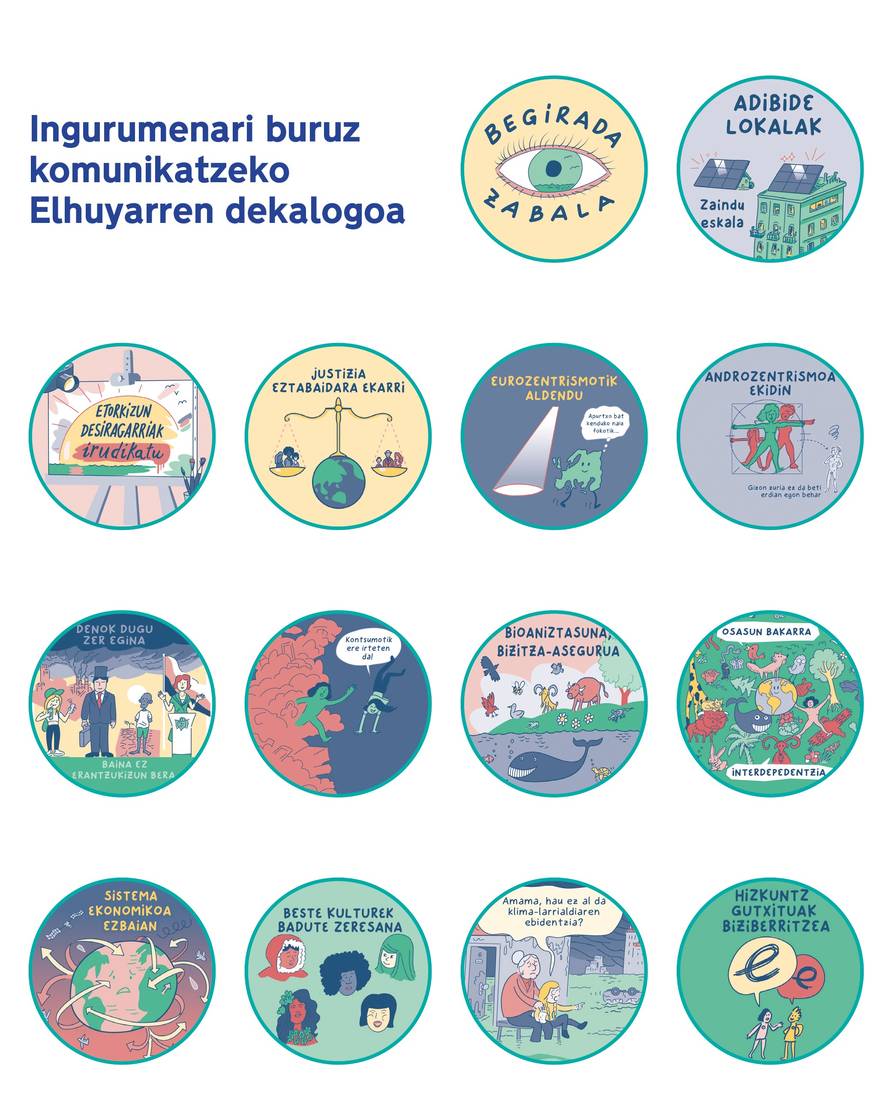Culture of peace
2023/11/29 STEAM-Hezkuntza (Elhuyar Zientzia)

There is a direct link between environmental crises and social injustices. Sometimes it's hard to see, but both have the same origin: abuse of power.
Environmental crises do not come by themselves. They are indirectly caused by conflicts in the socio-economic and political spheres. And the consequences of these conflicts, in addition to the planet, are affected by the oppression of powerful countries; poverty; the gender gap; exclusions by racial, cultural and religious identity; high unemployment rates; the serious deficiencies that manifest in educational, health and food systems…
Therefore, addressing the environmental emergency inevitably requires radically resolving the socio-economic and political issues that have led to it and internalizing a culture of peace. Recognizing that peace is not the absence of conflict, but injustice.
The climate emergency has highlighted a number of issues to be addressed:
- The richest countries control the natural resources of others. Consequently, countries with scarce economic resources cannot manage their wealth and develop it as they would like, either economically or socially. An example of this is the western metal and mineral extraction industry in Africa for the digital industry.
- The abuses committed by rich countries are mainly suffered by poor countries. In the southern hemisphere, the most severe droughts and famines are occurring as a result of climate change.
- Now, along with the environmental emergency, these issues need to be addressed. It is not legitimate for the richer countries to condition the development of other countries and damage their future.
They're raising voices against abuse of power. Give space in the context of the environmental emergency.
With climate change, the planet doesn't go away, but it's clear that some human groups are going to have a really bad time. Are we prepared to question our economic system? Are we willing to change our lifestyles and our abusive consumption habits, or are we going to continue to endanger the welfare of the poorest in order to maintain our comfort?
The responsibility of a planet in critical condition is not homogeneous. Should the responsibility for change now be homogeneous?
Resources are limited. How do we distribute them?
Ecofeminism provides an interesting contribution to the problem of environmental emergency, among other things because it shows that the capitalist and patriarchal system is the one that establishes a totally unbalanced way of relating to nature. It promotes exploitation until exhaustion and sees a direct relationship between the exploitation of the planet and the domination of women and other marginalized groups.
Ecofeminism claims the need to revise concepts such as economy, production, development and work to make them ecologically and socially sustainable. Just as it puts life care at the heart of the economy, it puts the surveillance of the planet at the center of this environmental emergency.
This unbalanced way of relating to nature is also based on anthropocentrism. Looking at the world from the simple view of our species has led us to behave blindly with other species and to understand ourselves as passive beings to meet human needs. Given the culture of peace, it is up to us to review our relationship with other species.
To delve into the contents click here.
This project, promoted by Elhuyar, is supported by the Department of Economic Promotion and Strategic Projects of the Provincial Council of Gipuzkoa.

Gai honi buruzko eduki gehiago
Elhuyarrek garatutako teknologia






